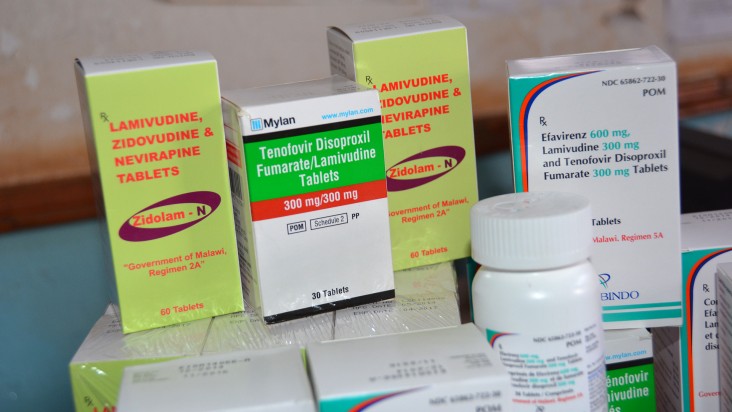
USAID Malawi works with the Government of Malawi (GoM) to address health-related challenges such as HIV/ AIDS, malaria, and undernourishment. While the country now has access to some of the commodities that can help fight several of these national challenges, in many cases, the country struggles to get these resources to the people who need them.
USAID works with the GoM to maintain an uninterrupted supply of health commodities in the country’s communities and public health facilities. In addition, secured storage and monthly distribution of anti-malaria and family planning commodities is provided to all of the 600+ public health facilities across the country. To promote sustainability and in an effort to help the Malawian government build its institutional capacity, USAID supports the Ministry of Health’s (MoH) procurement and supply chain management by seconding advisors at the MoH and training district health facility staff.
IMPACT
- In 2016, USAID is partnering with the U.K. Department for International Development (DfID) to address the acute shortage of commodity storage space in public health facilities through the procurement and installation of pre-fabricated storage units at 108 priority sites, thus increasing the availability of life-saving medicines through improved storage and inventory management practices.
- USAID led a multi-donor team to develop the first joint strategy for supply chain integration in Malawi. This strategy serves both as a roadmap for integrating multiple parallel supply chain systems in Malawi into the national system and as a catalyst for achieving operational efficiencies and cost savings. In 2016, USAID is supporting an independent assessment of Central Medical Stores Trust’s capacity to integrate the parallel supply chains in Malawi.
- USAID works to address the chronic shortage of health workers for drug management at health facilities. Over 1,000 health surveillance assistants were trained in 2012 to serve as drug store clerks as a short-term measure. Meanwhile, USAID is increasing the supply chain workforce by training 98 Pharmacy Assistants at the Malawi College of Health Sciences (MCHS). Twenty of these students graduated in 2015 and have been deployed to health centers across Malawi to assume responsibility for management of health commodities. The remaining 78 pharmacy assistant students are currently undergoing training at MCHS and will graduate in 2016 and 2017.
- USAID provides technical assistance to the MoH to maintain a functional logistics management information system, which enables health facilities to collect, report, and transmit drug consumption data to the district and national levels on a monthly basis. This allows for accurate estimates of drug needs and resupply quantities, reducing risk of stockouts and expiries.







Comment
Make a general inquiry or suggest an improvement.